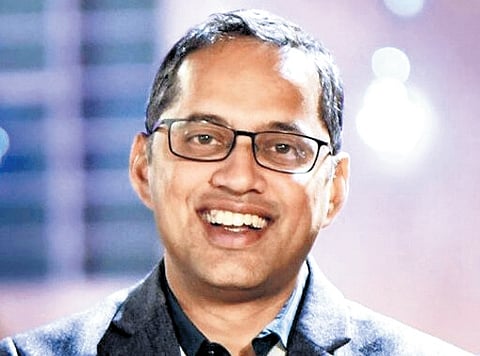

NEW DELHI: Mental illness, including schizophrenia, can now be treated just like diabetes and cardiovascular diseases as there are medicines available in the country, said Dr Koushik Sinha Deb, Additional Professor (Psychiatry) at All India Institute of Medical Sciences (AIIMS), Delhi.
He was speaking at an event on the Convergence of History and Psychiatry at IIC here on Friday, where panelists discussed the intersections of history and psychiatry.
Dr Deb said that there was a time in history when leprosy and tuberculosis invited the same kind of stigma as mental illness does.
“The stigma was there about the two diseases because not much was known about their treatment. TB patients were also kept in sanatoriums, and leprosy patients were shunned. It was an unknown medical conditions,” he said.
“The same is true with mental illness. The basic understanding was less. The understanding of history taught us how the two diseases were feared and how we overcame them,” he added.
“Now, people are coming forward to get treated for mental illnesses like anxiety, depression, schizophrenia, and other serious mental ailments because there are proper medications for them. We know more about these illnesses now. We don’t fear it, so the stigma is no longer attached. Now, we can treat it just like diabetes and cardiovascular diseases,” he told this paper.
Dr Deb said a deep understanding of history, anthropology and sociology helped him empathise with his patients as he was able to relate to them humanely.
He said the understanding of medical and biological aspects may not tell the whole story while treating a patient. “But understanding the patient’s socio-cultural, historical, and sociological aspects helps a psychiatrist to treat the patient. This convergence help the psychiatrist to broaden their horizon. It opens one’s eyes to look at society differently.”
Dr Alok Sarin, a consultant psychiatrist at Sitaram Bhartia Institute of Science and Research, said, “There is convergence of history and psychiatry. Psychiatrists don’t have to become historians, and historians don’t have to become psychiatrists. But a psychiatrist will be much better informed by the understanding of this discipline.”
“History certainly helps a doctor understand the subject and about his patient. He can develop a deep connection with the patient,” he said.
At the occasion, he also launched a website, The Canvas Askew, a compilation of his writings and those of Dr Sanjeev Jain of the National Institute of Mental Health and Neuro-Sciences (NIMHANS), Bengaluru.
The website https://thecanvasaskew.com/ is about the intersections of mental health and history.
Dr Jain said that psychiatry has not been mainstreamed in India. “Mental illness is so marginalised.”
“Before we treat a patient, we have to take the patient's personal history, his family history, the times he is living in, and the society to make the correct understanding of the patient and his problem. This convergence is necessary to treat a patient correctly,” he added.
Psychiatrist Ananya Mahapatra from Baba Saheb Ambedkar College and Hospital said that the convergence of psychiatry and history fosters critical thinking.
“It creates introspection among us, helps us challenge our ideology, brings the self-awareness to promote ethical conduct, and brings about social justice to our practice.”